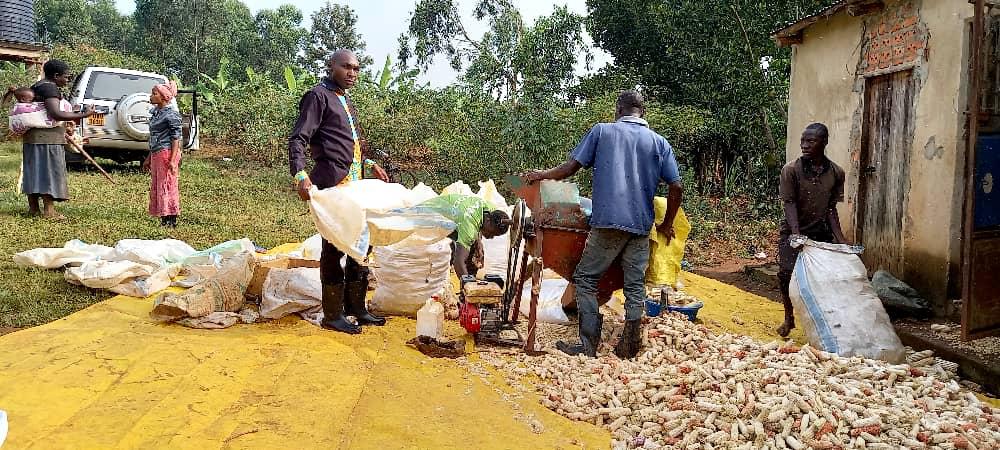By Jovita Mirembe
In a bid to make quick money, Ugandan farmers have increasingly resorted to using herbicides for drying maize and beans after harvest.
The practice of using herbicides to dry maize and beans after harvest has come under inspection by researchers where they found hidden dangers of this practice.
Dr. Henry Galiwango, a researcher from Makerere University’s School of Education, said that the widespread adoption of herbicides for this purpose has prompted concerns among experts who warn of the unintended risks associated with their use in Uganda’s Aagriculture sector.
He said that the cancer disease is one of the deadly threatening diseases that has a large evidence increasing suggestion with a link between herbicide exposure and its development.
Galiwango said that when farmers use this method , it exposes them and consumers to potential health and environmental hazards.
‘’ The widespread adoption of herbicides as a drying methods for beans and maize has prompted concerns among experts who warn of the unintended risks associated with their use in Uganda’s agriculture sector.
As a prominent voice in advocating for safer drying practices, my expertise sheds light on the risks associated with herbicide use where I offer practical recommendations to promote sustainable farming in the face of this growing challenge. I have brought attention to the significant health risks, environmental concerns, and the imperative for ecosystem conservation associated with herbicide use in crop drying’’ Galiwango said
He added that herbicides were originally designed for weed control not drying purposes because , residual traces remain in the harvested crops. These residues can contaminate the food supply chain, potentially causing long-term health effects such as organ damage, hormonal disruption, and an increased risk of certain cancers.
Albert Kakande the CEO of Mende, Masulita and Gombe Agroecology group( MEMAGO) said that use of herbicides in drying beans and maize affects the soil health.
MEMAGO deals in producing organic fertilizers, organic pesticides and fungicides and general organic agricultural training.

He says that in this the ability of food nutrients to be up taken from the soil through the root system of the plants is a huge factor of living microorganisms known as microbes is not reached upon.
Kakande said that these microbes do the breakdown of food nutrients for the plant to take up, e.g, breaking down the protein and amino acid components into the required form of nitrogen as plant food.
‘The continued spraying of the glyphosate based herbicides not only kills off the grass plus damaging the tissues of the fruits to look as if they are ripe, but the herbicides also kill off the very important microbes, leaving the soil depleted and warn out. Depleted soils are an extra burden to the farmer, as he/she will be having to buy fertilizers during each planting season’ Kakande said
He said that using herbicides as a drying method brings about an effect on the quality of the produce many times, poor quality produce i.e. maize, beans have stormed both the local and export markets. Kakande said that many times produce from Uganda has been rejected by international markets because of traces of agrochemicals as well as toxins hence leading to loss of revenues for the country.
He says that several other diseases and genetic alterations have been tracked to be caused by agrochemical residues found in herbicides. Respiratory diseases like asthma and allergies are a common ailments caused by herbicide use too.
‘As organic agriculture and agroecology devotees, we at MEMAGO Agroecology group have continued to sensitize and train farmers on the dangers of the practice of hurrying ripening of crops by spraying glyphosate and other chemicals on cereals, legumes and fruits. We have engaged in several innovations on organic farm inputs ie bio-fertilizers, bio-pest and fungicides, as well as herbicides. The future of responsible land use has been compromised by such acts of quick yet dangerous desire for returns from the garden’ Kakande adds





